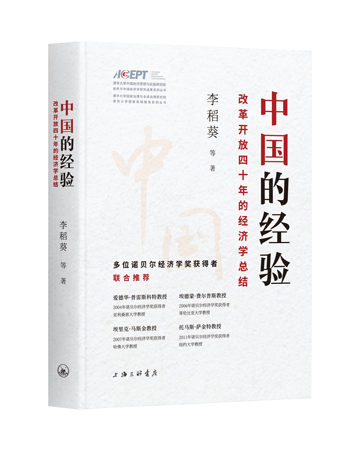China's Experience: An Economic Summary of the Forty Years Following Reform and Opening Up

Publishing house: Shanghai Joint Publishing
Author: David Daokui Li and 24 others
Published: July 2020
Introduction:
China's Experience: An Economic Summary of the Forty Years Following Reform and Opening Up is a monumental research achievement of the Academic Center for Chinese Economic Practice and Thinking (ACCEPT).
The forty years following China's reform and opening up have had economic implications generally falling within five categories, with each category revolving around the relationship between government and economy. First, economic growth requires the creation and development of new businesses, and local governments must be empowered to create a fertile business environment. Second, rapid land conversion is the key to economic growth, which requires incentives for local governments to help convert land use rights from agricultural land to industrial or commercial land. Third, financial deepening is essential for transforming household savings to investments in the real economy, which requires long-term financial stability. Forth, the most fundamental function of openness is to facilitate learning, rather than to simply exert comparative advantages or leverage foreign funds and technologies. Fifth, the central government must actively regulate and control the macroeconomy. Generally speaking, an economic summary of the forty years since China's reform and opening up is that a successful economy must strike a balance between the government and the economy, and especially between the government and the market. Governments at all levels serve as economic actors in all activities, and their incentives and behaviors must be regulated. Only in this way can governments and markets work hand in hand to sustain sound economic development.




